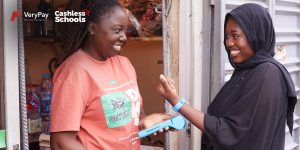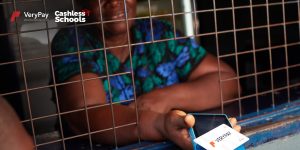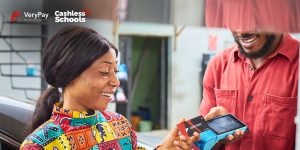
In many parts of Africa, internet access is patchy at best and nonexistent at worst. But that hasn’t stopped business from thriving in open markets, school canteens, roadside kiosks, and neighborhood shops. The challenge? Most digital payment systems are built with a constant internet connection in mind, leaving out millions of small merchants who drive the continent’s economy. At VeryPay, we believe that inclusion starts with access. That’s why we’ve built our system to function offline so that even when the signal cuts out, commerce keeps going.
The Offline Reality
Across Africa, over 60% of people still don’t have reliable access to mobile internet, according to the GSMA. In rural areas and dense urban markets, merchants often operate in low-connectivity environments where traditional mobile payment apps simply don’t work. Even where connectivity exists, high data costs, network congestion, or power cuts can interrupt service at any time.
For the average school food vendor or market trader, this isn’t just an inconvenience; it’s a barrier to doing business. If a customer’s card fails to process due to poor signal, that’s a lost sale. If a merchant can’t confirm a payment instantly, that’s friction in an already fast-paced environment.
How VeryPay Enables Offline Payments
VeryPay solves this challenge through a uniquely offline-first approach. Our POS devices and smart merchant tools are built to function seamlessly without a live internet connection.
Here’s how it works:
- Transactions are processed instantly, even without a data connection.
- Card balances are stored securely on the chip, allowing for accurate payments.
- Merchants can continue selling all day, and only need to sync to the internet once at the end of the day, or whenever they find a stable connection.
- The sync process automatically updates records, ensuring all parties have visibility and oversight.
This means merchants can accept payments anywhere: in a school canteen deep in rural Uganda, at a mobile kiosk in Benin, or at a weekend market in Senegal.

A Vendor’s Story: Sales Without Stress
Meet Esther, a school canteen operator in central Uganda. Before VeryPay, she relied heavily on cash, constantly managing change, worrying about theft, and facing long queues from students. Digital payment systems sounded promising, but the internet on school grounds was too unreliable to support them.
With VeryPay, Esther now accepts student cards using a POS device that doesn’t require an internet connection. Her queue moves faster, her payments are accurate, and she syncs her transactions at night from home. In just two months, she’s reported a 40% increase in daily sales.
“I don’t worry about the network anymore,” she says. “The POS just works.”

Why Offline Capabilities Matter for Inclusion
Offline payment isn’t just a technical feature; it’s a bridge to financial inclusion.
By removing the need for constant connectivity or smartphones, VeryPay opens the door for merchants, guardians, and even students in low-tech environments. It creates trust in digital systems, especially for first-time users. It also reduces common customer support issues like failed payments or incomplete transactions because the system is built to work reliably, even without signal.
In places where infrastructure is still catching up, this kind of flexibility is essential.
For Governments, NGOs, and Aid Programs
Offline capability also supports larger ecosystem players. Governments can use VeryPay to distribute social cash transfers to vulnerable populations through agents operating in low-connectivity zones. NGOs running school feeding programs or refugee services can confidently process payments on-site, knowing their teams can work without real-time signal.
Banks and MFIs partnering with VeryPay benefit from cleaner transaction records, fewer errors, and a smoother merchant experience. It’s the kind of resilience that’s needed to scale digital inclusion programs across diverse geographies.
The Future Is Flexible
At VeryPay, we’re not just building tech we’re building tools that adapt to Africa’s real-world conditions. Offline payments mean fewer barriers, more trust, and faster adoption of digital finance across the board. Whether it’s a merchant in Kampala, a school in Porto-Novo, or a government agency in Dakar, the power to transact should never be limited by internet access.
Want to see it in action?
Book a demo with our team or learn more about our offline-first tools for merchants and schools at www.verypay.africa.




